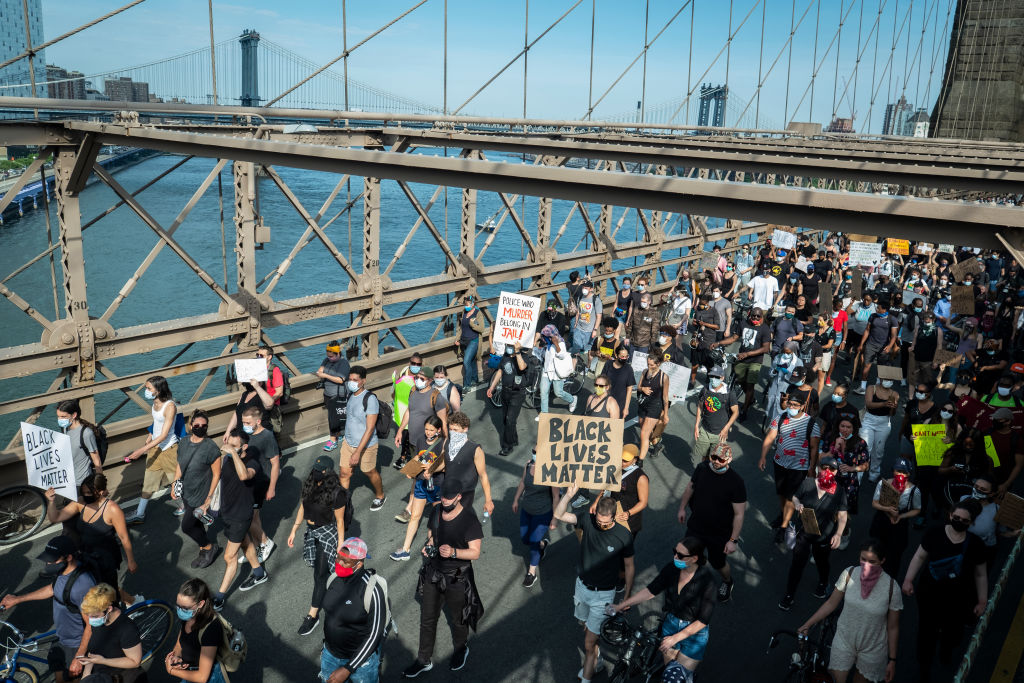Over the last few weeks, protest and action across the country and around the world has shined a light on widespread inequality and racism faced by Black people today. George Floyd’s death, and the innumerable instances of inequality and violence it has come to represent, highlights inescapable systemic injustices that are too often ignored by those with the power to make a difference. And they make clear that the work of building a more just society will involve speaking to a wide group of Americans, creating a national consensus around ideas and policies that drive change.
As we think about how to do this work, we often divide the people we are trying to reach into one of three categories: the hateful, the ignorant, and the indifferent. The hateful are the active bigots we consider to be active impediments to change. The ignorant are those who might be supportive of racial justice measures if provided with enough information and persuasion. The indifferent see this work as outside their responsibility, or of little consequence to them. In working towards policies to dismantle systemic racism, we tend to focus our persuasion efforts on the latter two groups, using education and motivation to change hearts and minds.
Too often, though, we ignore a critical fourth group: the uncomfortable. Most of us have plenty of anecdotal evidence of this group, whether it includes our family members, our friends, or even ourselves. For many people around the country, discussions of race are considered off-limits, or taboo. Individuals in this category might feel unqualified or unable to engage on the topic. They might be wary of making a misstep or saying the wrong thing, or feel that it’s not their place to speak out. In some cases, they might be supportive of movements to end inequality, but aren’t sure how best to express their views.
Particularly at a time of extreme national conflict, it may be difficult for these individuals to translate empathy into action. In some ways, these individuals are similar to a friend who doesn’t have the language to comfort a grieving loved one at a funeral. Should they extend their condolences? Tell a story about the deceased? Should they simply put a hand on their friend’s shoulder? Unsure of what to do and without instruction, they may ultimately do nothing — letting the moment pass. In our current environment, that presents a missed opportunity to make real progress.
So how do we do we reach these uncomfortable Americans? We might begin by acknowledging discomfort, and meeting these individuals where they are. We might develop specific tools and strategies to minimize discomfort, whether that includes standard language and conventions, or a clear and understandable set of policy proposals that can lead into a larger conversation about inequality. We might even rally unlikely leaders who are uncomfortable themselves to begin a conversation by taking the first step.
In some cases, corporate leaders can make a difference. Several years ago, Starbucks CEO Howard Schultz launched the Race Together initiative, which encouraged employees to engage customers in conversations about race relations. While the effort faced some criticism, it also started a national dialogue, breaking through some of our natural unwillingness to engage on the issue and creating a pathway for an important exchange. Initiatives like this one are valuable—not in reaching every American, but in reducing barriers that tend to keep us from discussing the impact of racial bias.
Of course, this is not to suggest that our strategy to dismantle the extreme racial inequality and injustice in this country should be to cater to uncomfortable white people. There is no question that the minor discomfort of a conversation about race pales next to the daily indignities, injustices, and often violent discrimination that Black Americans face. Nor should it be the responsibility of Black Americans to ease the experience of others. Still, if we are able to find the tools and the language to draw in some of these “uncomfortables,” it is possible that we could create allies out of a large group of people who might otherwise remain on the sidelines.
We are facing an extraordinary moment in American life. Making sweeping changes to the way this country approaches its relationship with racial equality and justice will take all the voices and support we can muster. As we do that work, it is imperative that we speak to all Americans — and that means offering uncomfortable allies the opportunity to be part of that change.


